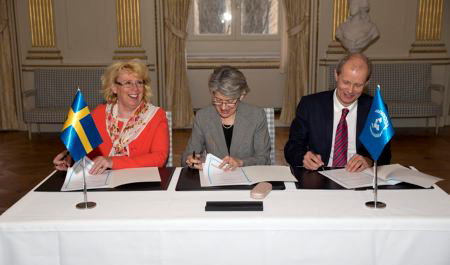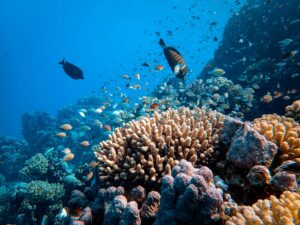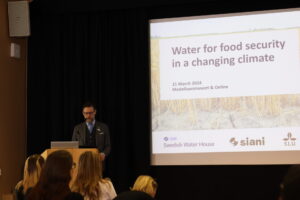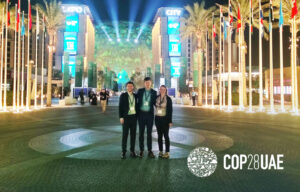SIWI, UNESCO and the Government of Sweden signs agreement for UNESCO Centre
Today, on March 25 at 5.15 pm, UNESCO, the Government of Sweden, and SIWI sign the agreement to establish the International Centre for Water Cooperation under auspices of UNESCO.

The signing will take place at the Ministry of Foreign Affairs office in Stockholm. Present will be Swedish Minister for the Environment Lena Ek, UNESCO Director-General Irina Bokova, and SIWI’s Executive Director Torgny Holmgren.
The centre will be run by the Stockholm International Water Institute (SIWI) in close collaboration with Uppsala University and the University of Gothenburg. With its focus on transboundary water cooperation, the centre will be one of a kind.
The majority of the world’s countries share water resources in some form, such as rivers and lakes. Consequently cooperation with other States on this vital resource is essential. The Swedish UNESCO Centre will focus on equitable water cooperation and aims to develop research and knowledge on transboundary water resource management. The centre will also concentrate on how to establish and develop effective water partnerships despite contexts of political conflict.
81 UNESCO Centre’s exist in different parts of the world, with 18 of them focusing on water related issues.
This is the first time that a UNESCO Centre has been established in Sweden and the first time a Centre will focus on transboundary cooperation. This new UNESCO Centre will help Sweden deepen its involvement and cooperation with international partners in water issues and disseminate Swedish research in this area. The focus will draw from the strong tradition of research on water conflict and cooperation that exists in Sweden today.
The established Centre will be an independent research institution, but not a typical one. The Centre will provide a unique environment to the researchers in Sweden by promoting interdisciplinary research, global perspective, and research to policy. The ambition is to establish a research school on transboundary water cooperation that provides academic training opportunities for junior researchers and conducts quality research by senior researchers. The outcomes of the research school will be translated into policy recommendations which will be fed into capacity building and advisory service work of the Centre.
- Academic training & research
- Applied research
- Capacity building
- Advisory Services
As part of UNESCO family, the Centre will work closely with UNESCO and other UNESCO institutions.
- Contributing to the UNESCO International Hydrological Programme
- Tapping the UNESCO’s extensive network
- Utilising the knowledge generated to solve global problems







